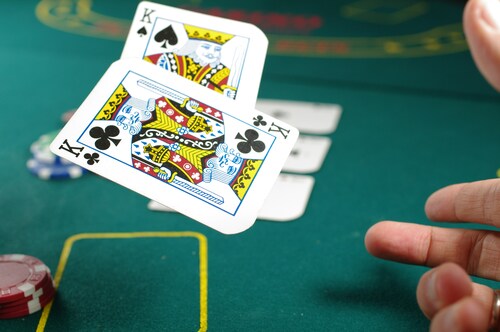Introduction
Solitaire, the classic single-player card game, has been a source of entertainment and fascination for generations. While it may appear deceptively simple at first glance, it has captured the hearts of countless players worldwide. Beyond the solitary facade of the game lies a realm of strategy, skill, and dedication that has given rise to Solitaire Masters – individuals who have honed their abilities to excel in this timeless card game. In this article, we will explore the captivating world of Solitaire Masters, delving into the history of the game, the strategies they employ, and the allure of mastering Solitaire.
A Glimpse into Solitaire’s Origins
The precise origins of Solitaire, also known as “patience,” are somewhat shrouded in history, making it challenging to pinpoint when and where the game first emerged. It is widely believed that Solitaire has European origins, potentially originating in the courts of France during the 18th century. The term “solitaire” itself is derived from the French word for “solitary” or “alone,” reflecting the game’s nature as a solo pursuit.
Solitaire eventually made its way to North America, where it gained popularity during the 19th century. The game served as a source of entertainment and solace for individuals seeking a moment of respite or a diversion from the challenges of daily life. Over time, Solitaire evolved and adapted to different cultures and regions, solidifying its status as a beloved classic worldwide.
Unveiling the Basics of Solitaire
Before we immerse ourselves in the world of Solitaire Masters, let’s revisit the fundamental rules of the game. Solitaire is traditionally played with a standard deck of 52 playing cards, though variations exist. The objective is to organize all the cards into four foundation piles, one for each suit (hearts, diamonds, clubs, and spades). These foundation piles must be constructed sequentially from Ace to King.
The game begins with a tableau, consisting of seven columns of cards. The first column contains one card, the second column has two cards (with the top card face up), and so on, with the seventh column containing seven cards (with the top card face up). The remaining cards are placed face down to form the draw pile, from which players can draw cards one at a time.
Cards in the tableau can be moved according to specific rules:
- You can move a single card or a sequence of cards (in descending order and alternating colors) to an open column or onto a card of the opposite color that is one rank higher.
- Kings, or Kings with their sequences of cards, can be moved to an empty column.
- Cards can be drawn from the draw pile and played in the tableau or moved to the foundation piles if they match the suit and rank sequence.
Strategies for Solitaire Mastery
While Solitaire may appear to be a game of chance, it demands careful planning and strategic thinking for consistent success. Solitaire Masters employ a range of strategies to navigate the complexities of the game effectively. Here are some essential strategies:
- Revealing Face-Down Cards: One of the primary objectives in Solitaire is to unveil face-down cards in the tableau. This opens up more possibilities and provides greater maneuverability. Start by revealing cards with the fewest face-down cards on top of them.
- Creating Empty Columns: Empty columns are valuable spaces that allow for temporary card placement and strategic maneuvering. To create an empty column, aim to move all the cards in a column to another column strategically.
- Thoughtful Foundation Pile Construction: Prioritize building the foundation piles sequentially, beginning with the Ace of each suit. Focus on the suits that have the most accessible cards within the tableau. Avoid moving Kings to foundation piles prematurely, as doing so may block columns.
- Planning Ahead: Thinking several moves ahead is essential in Solitaire. Consider the consequences of each move and visualize how your current decisions will affect future moves. A well-thought-out plan can make all the difference.
- Leveraging Sequences: Take advantage of sequences of cards in descending order and alternating colors. Moving entire sequences can help create space and grant access to cards beneath them.
- Exercising Patience: Solitaire is a game that rewards patience and deliberate decision-making. Avoid rushing through the game; instead, take your time to analyze the board and make calculated moves.
The Journey to Solitaire Mastery
Becoming a Solitaire Master is a journey that requires dedication, practice, and a deep understanding of the game’s intricacies. It’s about more than just winning individual games; it’s about consistently demonstrating skill and strategic prowess. While there may not be official Solitaire championships or tournaments, there are many online communities and platforms where Solitaire enthusiasts can test their skills against others and showcase their mastery.
One notable figure in the world of Solitaire is Thomas Warfield, the creator of Pretty Good Solitaire, a popular computer program that offers a vast collection of Solitaire variants. Warfield’s passion for Solitaire and his dedication to perfecting the game have earned him a respected place in the Solitaire community.
Online Solitaire communities and forums serve as platforms for players to exchange strategies, share tips, and engage in friendly challenges. These communities allow Solitaire enthusiasts to connect with others who share their passion and learn from one another’s experiences.
Benefits of Playing Solitaire
Solitaire offers more than just entertainment; it provides a range of benefits that contribute to its enduring popularity:
- Cognitive Exercise: Playing Solitaire engages cognitive functions such as memory, attention, and problem-solving. It challenges players to think strategically, promoting mental agility.
- Stress Relief: Solitaire offers a peaceful escape from the stresses of everyday life. The solitary nature of the game allows players to focus their minds and find relaxation in solitude.
- Portable Entertainment: Solitaire is highly portable and can be enjoyed with a standard deck of cards or on various electronic devices. Its accessibility makes it a convenient form of entertainment for people of all ages.
- Self-Improvement: As players continue to refine their Solitaire skills, they can track their progress and strive for self-improvement. Achieving mastery in Solitaire is a satisfying and rewarding endeavor.
Conclusion
Solitaire may seem like a simple card game on the surface, but it offers a profound sense of accomplishment and challenge to those who delve into its intricacies. Solitaire Masters, like Thomas Warfield and countless others, have devoted themselves to perfecting this timeless classic. Whether you’re a casual player or aspire to ascend to the ranks of Solitaire Masters, remember that success in Solitaire, like in life, comes to those who plan, strategize, and persevere. So, the next time you find yourself with a deck of cards or a digital version on your screen, take a moment to appreciate the art and mastery of Solitaire and consider embarking on your journey to becoming a Solitaire Master yourself.




